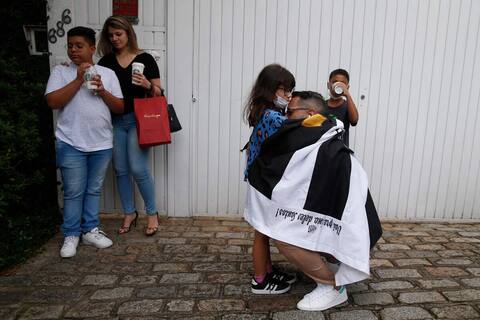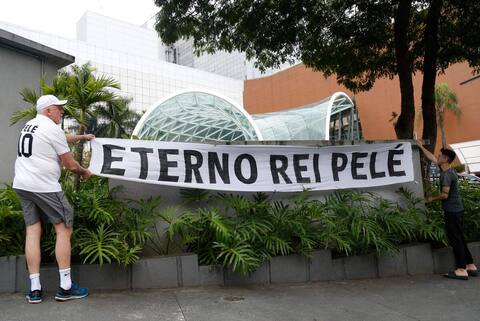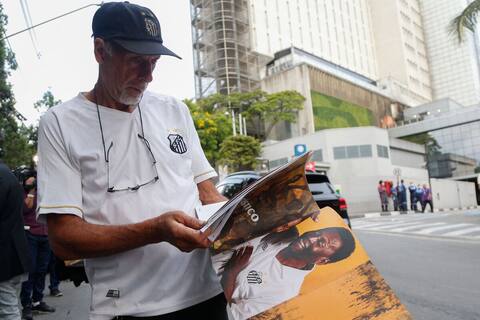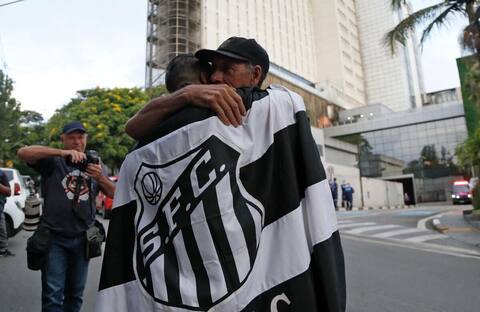“It was Pelé who made me fall in love with football,” said Alipio Bedaque, 66, one of the “King’s” many admirers who came to pay homage to him in front of the São Paulo hospital where the Brazilian died on Thursday at the age of 82.
• Read also: Pelé: “He was very helpful, very human”
• Read also: The world reacts to Pele’s death
Located on top of a hill, in the wealthy district of Morumbi, the Albert Einstein hospital center immediately attracted fans of the legend of the round balloon, who arrived after the announcement of the death of Pele, who had been battling cancer for more than a year to the colon.
Faced with the shock of the disappearance of the only footballer to have won three World Cups (1958, 1962 and 1970), some admirers embraced each other.
“I wasn’t even born when he played for Santos, but the first name I knew was Pele, the best player of all time,” says 12-year-old Luis Eduardo, dressed in a Spanish club Barcelona shirt, visibly moved.
“It’s very sad,” she said. After learning on social networks of the death of the legendary Brazilian, the young Louis Eduardo ran with his father Antonio to the hospital whose doors were, as for several days, locked and guarded by private guards.
Covered by a glass dome, the entrance to the hospital continued to receive patients and visitors despite the announcement of Pele’s death.
Outside, admirers displayed a banner with the inscription: “Eternal King Pele.”
“Imagine, he’s the greatest idol, the best player of all time, an international reference,” says Antonio, a 46-year-old entrepreneur.
He had gone to the hospital with his son in recent days because another of his children had been operated on there. He hoped with his children to have a chance to see the Brazilian star.
“I’ve always wanted to be close to him and have my picture taken,” says Luis Eduardo.
“You only looked at Pele”
Pelé, real name Edson Arantes do Nascimento, died surrounded by family members on Thursday afternoon, a month after being hospitalized. He died “of multiple organ failure due to the progression of his colon cancer,” the hospital said.
Upon hearing the news, Alipio Bedaque, a 66-year-old consultant, rushed to the hospital, not without first wearing a special garment: a replica of the shirt of Pelé’s historic team, Santos FC, scratched in black and white and dating back to 1956, the year of his debut.
The man vividly remembers the times he saw him on the pitch at Santos.
“What happened is that you didn’t see the other players, you just looked at Pelé and what he was doing,” recalls Alipio Bedaque, attributing “responsibility” to the star for his passion for football.
The city of Santos, cradle of the former Brazilian star’s career, in the state of São Paulo (southeast), has declared an official seven-day mourning.
“His death is not limited to that of a famous player,” continues Alipio Bedaque. “Over the past 40 years, he’s been a huge global icon beyond the sport he’s played.”





